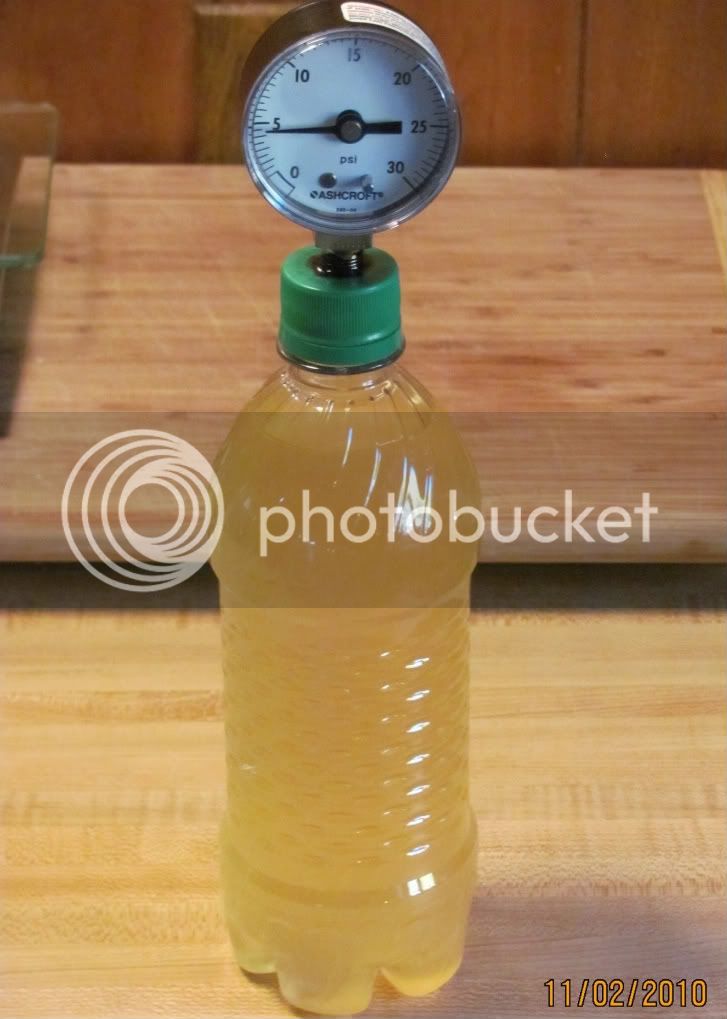ManiacBrewing
Member
I have ran out of bottles and i am sick of using them. I have a IPA fermenting right now. Is it safe to bottle them in a half a gallon growler? I once used carlo rosi wine bottles and they exploded LOL.








![Craft A Brew - Safale S-04 Dry Yeast - Fermentis - English Ale Dry Yeast - For English and American Ales and Hard Apple Ciders - Ingredients for Home Brewing - Beer Making Supplies - [1 Pack]](https://m.media-amazon.com/images/I/41fVGNh6JfL._SL500_.jpg)



Bottles explode too, should we not use them? There are growlers that can easily hold the pressure and those, like in Revvy's example thread, that aren't built to hold the pressure. If it has a twist cap or plastic cap then it's not going to hold carbing pressure. My Sierra Nevada growler is thicker than any homebrew bottle out there, even the stubbies.
So to rebut the nay-sayers, it can be done with the right growler.
Got any pictures of said growler?
I've yet to see a growler in which I'd confidently carbonate beer.
TB
This is the one here. The photo makes it look thinner than it is due to the lighting. It's thick.
...I can't help myself, "that's what Favre said"
Bottles explode too, should we not use them?
[/i] Well, proper use of a growler is to hold ALREADY carbonated beer, from a keg, NOT bottle conditioning beers. They aren't made or rated for the pressured generated for bottle carbing.......
Why do growlers explode when bottle conditioning in them? If they can hold pressure after being filled from a tap, why can't they hold up to carbing?
Why do growlers explode when bottle conditioning in them? If they can hold pressure after being filled from a tap, why can't they hold up to carbing?
To carb a beer whether or not is is done naturally or with co2 you are forcing the gas into the solution. The pressure builds up, then there's a point where either the bottle fails or the co2, seeking the path of least resistance, forces itself into solution. You could call it a peak point, where there is a lot of pressure in the bottle, both already in solution and in the headspace trying to go into the solution, eventually it balances out and the beer is carbed.
Beer bottles, champagne bottles and kegs are rated with a higher psi/volume of co2 than wine bottles and growlers.
Already carbed and kegged beer is at a stable volume of co2 which is below the volume that growlers and winebottles are rated at. The FORCING of the co2 already happened. Why do you think kegs are made of metal and very very strong? To handle the pressure.
It really is a no brainer....
Correct. Also note that you are forcing a gas to dissolve into a liquid, not just "into solution," which may help picture why such pressure is required.
Already carbed beer doesn't produce any pressure to its container beyond atmospheric, unless nucleation takes place.
TB

Just 'cuz I feel like surfacing to stir a pot, I'll say that I keep away from growlers because I don't want to worry about the screw cap. There. Continue.
TL



This is the one here. The photo makes it look thinner than it is due to the lighting. It's thick.
...I can't help myself, "that's what Favre said"
Why do growlers explode when bottle conditioning in them? If they can hold pressure after being filled from a tap, why can't they hold up to carbing?

Thanks Rukus for your research. I still don't get why we have to explain this process- WHy people can't seem to get that there is a difference between carbonating beer, and carbed beer......But at least we have your data now.